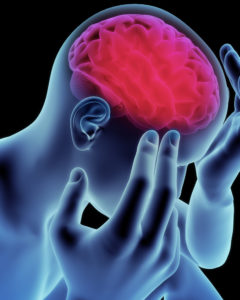Spinal Cord Injury Lawyer Indianapolis, IN
 Damage to the spinal cord happens in many ways, but some of the most common causes of injuries to the spinal cord are external trauma. Non-traumatic injury to the spinal cord is possible, but is not nearly as common. So you may be wondering what the spinal cord is, and that’s easy! The spinal cord is a large bundle of nerves, basically, that delivers impulses to and from the brain to the rest of the body. The brain’s the “command center”, and it sends out commands to every single part of your body—or it should. A spinal cord injury might stop that from happening. The spinal cord is roughly 18 inches long, extending from the base of the brain to the middle of the back, about the waist. A spinal cord injury can be complete, or incomplete. A complete injury means that there’s no function below the injury, and an incomplete means there’s some function, but not much. There are four types of spinal cord injuries, cervical, thoracic, lumbar and sacral. Call our Spinal Cord Injury Lawyer Indianapolis IN today!
Damage to the spinal cord happens in many ways, but some of the most common causes of injuries to the spinal cord are external trauma. Non-traumatic injury to the spinal cord is possible, but is not nearly as common. So you may be wondering what the spinal cord is, and that’s easy! The spinal cord is a large bundle of nerves, basically, that delivers impulses to and from the brain to the rest of the body. The brain’s the “command center”, and it sends out commands to every single part of your body—or it should. A spinal cord injury might stop that from happening. The spinal cord is roughly 18 inches long, extending from the base of the brain to the middle of the back, about the waist. A spinal cord injury can be complete, or incomplete. A complete injury means that there’s no function below the injury, and an incomplete means there’s some function, but not much. There are four types of spinal cord injuries, cervical, thoracic, lumbar and sacral. Call our Spinal Cord Injury Lawyer Indianapolis IN today!
Types of Spinal Cord Injuries
The vertebrae that can be injured are named by their location—so dependent upon whether they’re cervical, thoracic, sacral or lumbar will depend on the letter that goes before the vertebrae’s number, which indicates where it’s at in the spinal cord. The cervical spinal cord is made up of seven vertebrae in the neck, C-1 through C-7. This type of injury can cause loss of function in the arms and legs, and can result in quadriplegia. The 12 vertebrae in the chest, or the thoracic area, are the thoracic vertebrae—T-1 through T-12. Injuries to this region affect the chest and legs, often causing paraplegia. Then you have the lower back, the lumbar vertebrae. There are five of these—L-1 to L-5. This type of injury causes issues in the legs and other organs. Last but not least, comes the sacral vertebrae, of which there are five—S-1 through S-5. Injuries to this section can cause issues in the legs, hips and other organs.
Common Causes of Spinal Cord Injuries
Spinal cord injuries often occur due to vehicle accidents, gunshot wounds, falls, sports-related injuries and other similar accidents. If you’ve received a spinal cord injury due to negligence or violence, reach out to a spinal cord injury lawyer in Indianapolis, IN, and let them help with your case. Ward & Ward Personal Injury Lawyers has a lot of experience, around nine decades. Trust them with your case, and let them help you move on with your life after an accident that leaves you with a spinal cord injury. Moving on isn’t easy, but having a lawyer who understands it, can greatly help with moving forward. These lawyers have an open door policy, and their focus is their client’s. If you feel that you or your loved one’s spinal cord injury was caused by negligence, reach out to a Personal Injury Attorney Indianapolis, IN, such as Ward & Ward Personal Injury Lawyers.
Spinal Cord Injury Lawyers
Spinal cord injuries may be permanently disabling

A spinal cord injury (SCI) is one of the most devastating, life-long injuries you can suffer — both emotionally and economically. SCI occurs when there is damage to the nerves connected to the vertebrae, which carry messages to and from the brain and the entire body. SCI can be a minor bruise or a partial or total tear, usually caused by force to or penetration of the body. Indiana personal injury law allows victims of another person’s negligent or willful, harmful act to receive compensation for economic and emotional losses due to injuries like SCI.
Physical effects of SCI
It is estimated that more than 12,000 people sustain SCI each year, and vehicular-related accidents account for 36.5 percent of new injuries. Usually, the higher the site of the damage on the spinal cord, the more disabling the injury. These injuries can occur to the:
- High cervical (neck) — This usually results in quadriplegia (paralysis of all four limbs). Patients may need a ventilator to breathe and cannot cough or control bladder and bowel movements. They may not be able to speak, and cannot perform everyday activities, such as eating, dressing, bathing and engaging in sexual activities
- Low cervical —This varies, depending on the site of injury, but there may be some movement in the wrists and hands. Patients usually can speak and breathe properly, but cannot perform everyday activities without assistance.
- Thoracic (chest) — Usually, this results in paraplegia with the ability to use a manual wheelchair. Muscles, chest, back and abdomen are affected, but arms and hands are usually not impaired. Patients cannot control bladder and bowel movements.
- Lumbar (lower back) — This includes loss of hip and leg function. Patients may be able to walk with leg braces, but cannot control bladder and bowel movements.
There are two types of SCI. Complete injuries result in no sensation or movement below the site of injury, and both sides of the body are equally affected. Incomplete injuries result in some function below the site of injury, usually where one side of the body has more movement, while the other side has more sensation.
Economic effects of SCI
Costs associated with SCI vary greatly, depending on the patient’s age at the time of injury, the severity of the injury and recovery prognosis. Bills for hospital visits, physical therapy, in-home care, wheelchairs and ventilators can pile up quickly. Medical expenses can reach more than $1 million for the first year and $181,000 for each subsequent year of a high cervical SCI — not including lost wages or other benefits. Experienced Indianapolis personal injury lawyers can help you recover those damages.
Contact us for a reputable lawyer in Indiana
If you or a loved one suffered a SCI, you are probably facing economical and emotional challenges, especially if the injury resulted from someone else’s wrongdoing. The attorneys at Ward & Ward Personal Injury Lawyers have the experience in and knowledge of Indiana personal injury law to advocate on your behalf. Contact their office for a free consultation about your legal options. Call Charlie Ward today at 317-639-9501 for an evaluation of your case.

